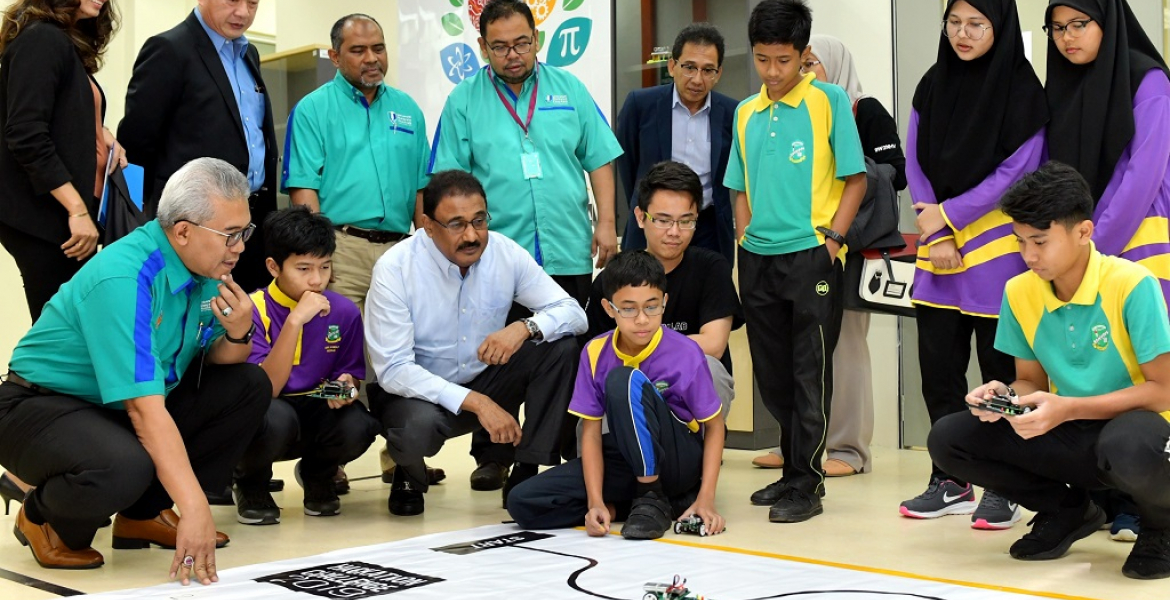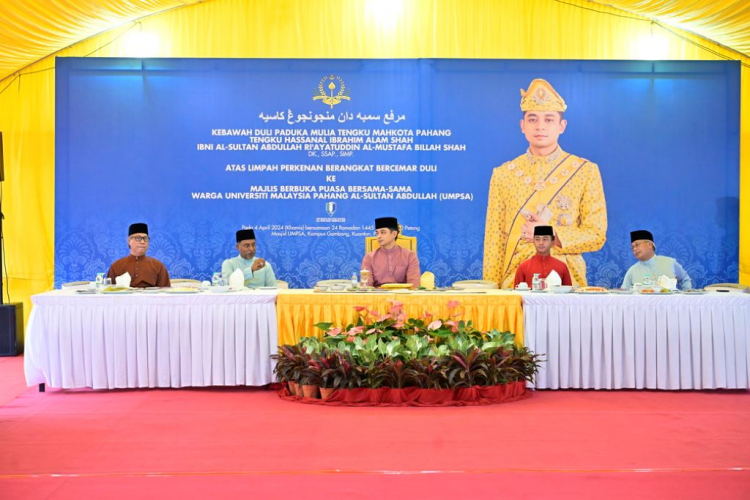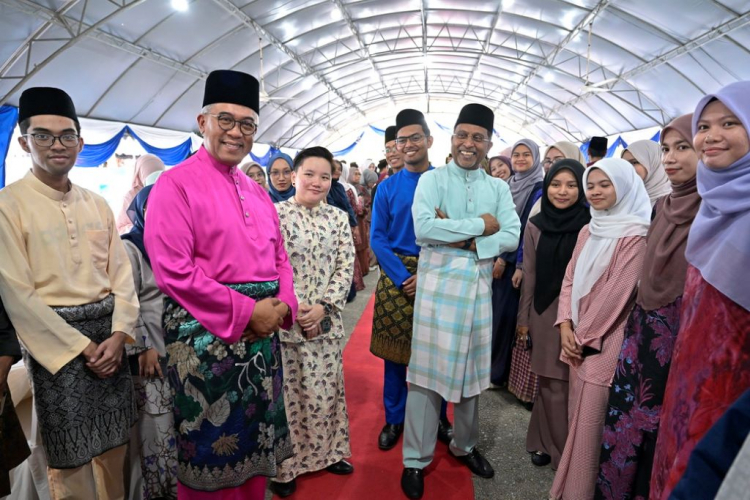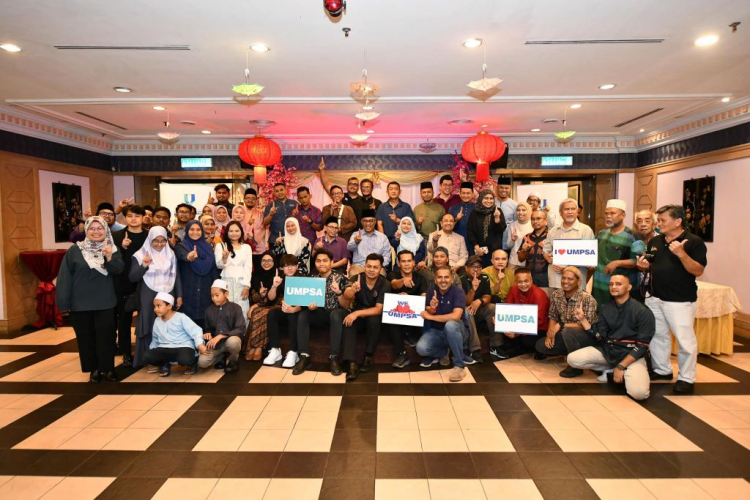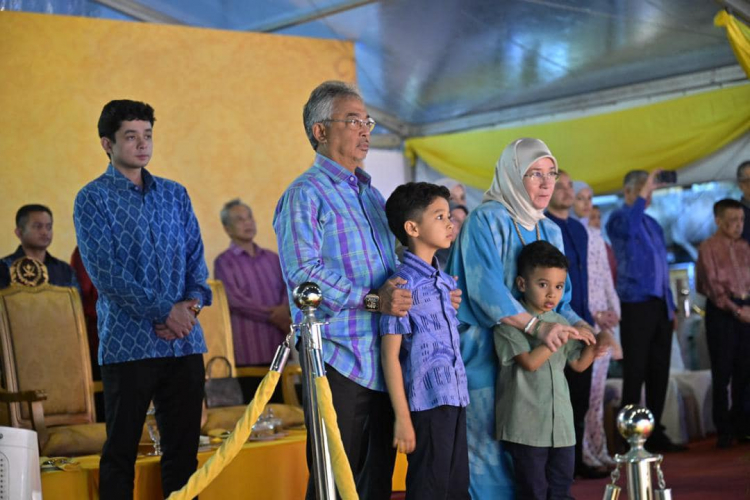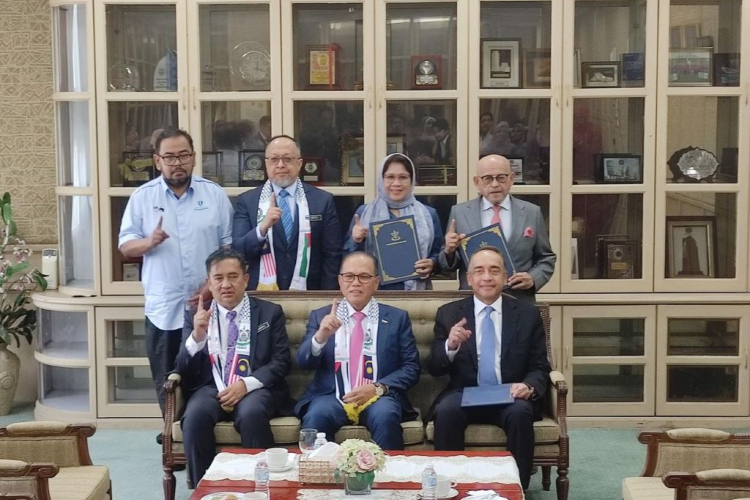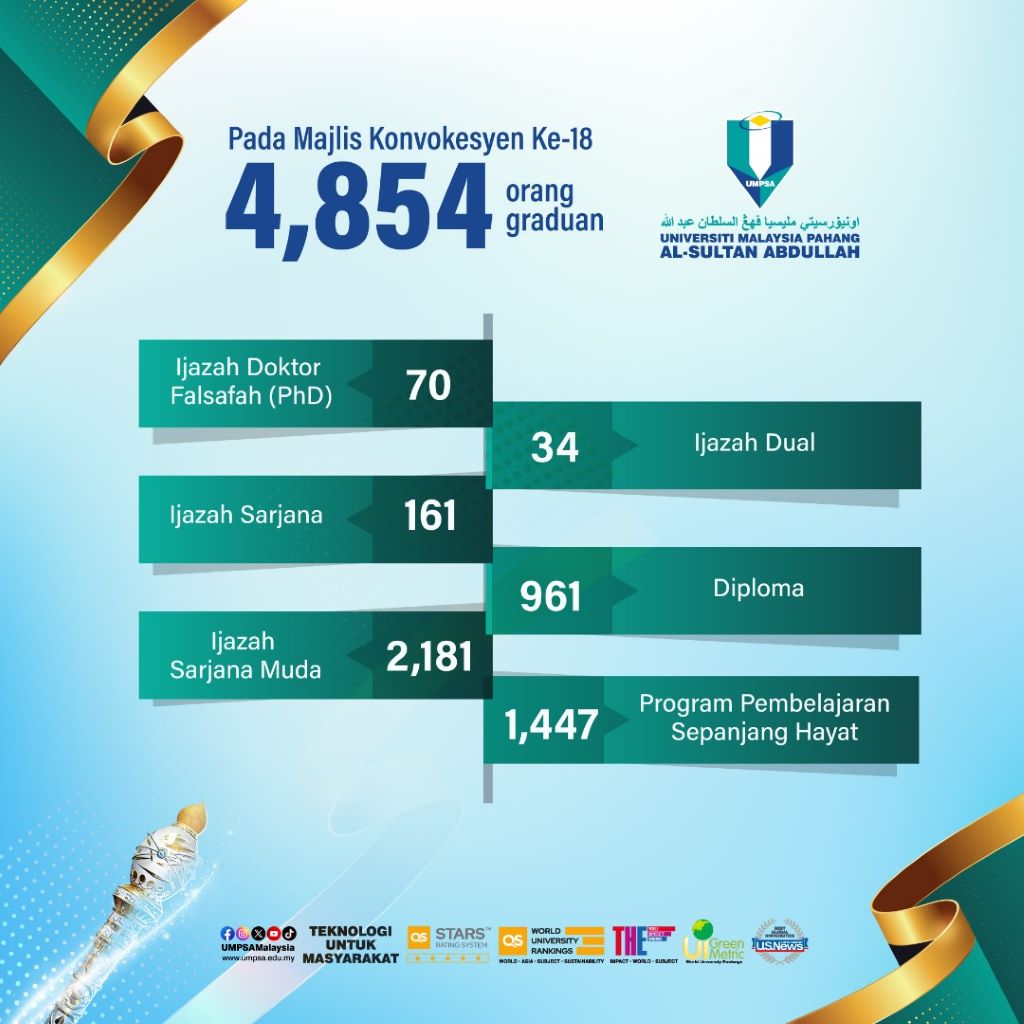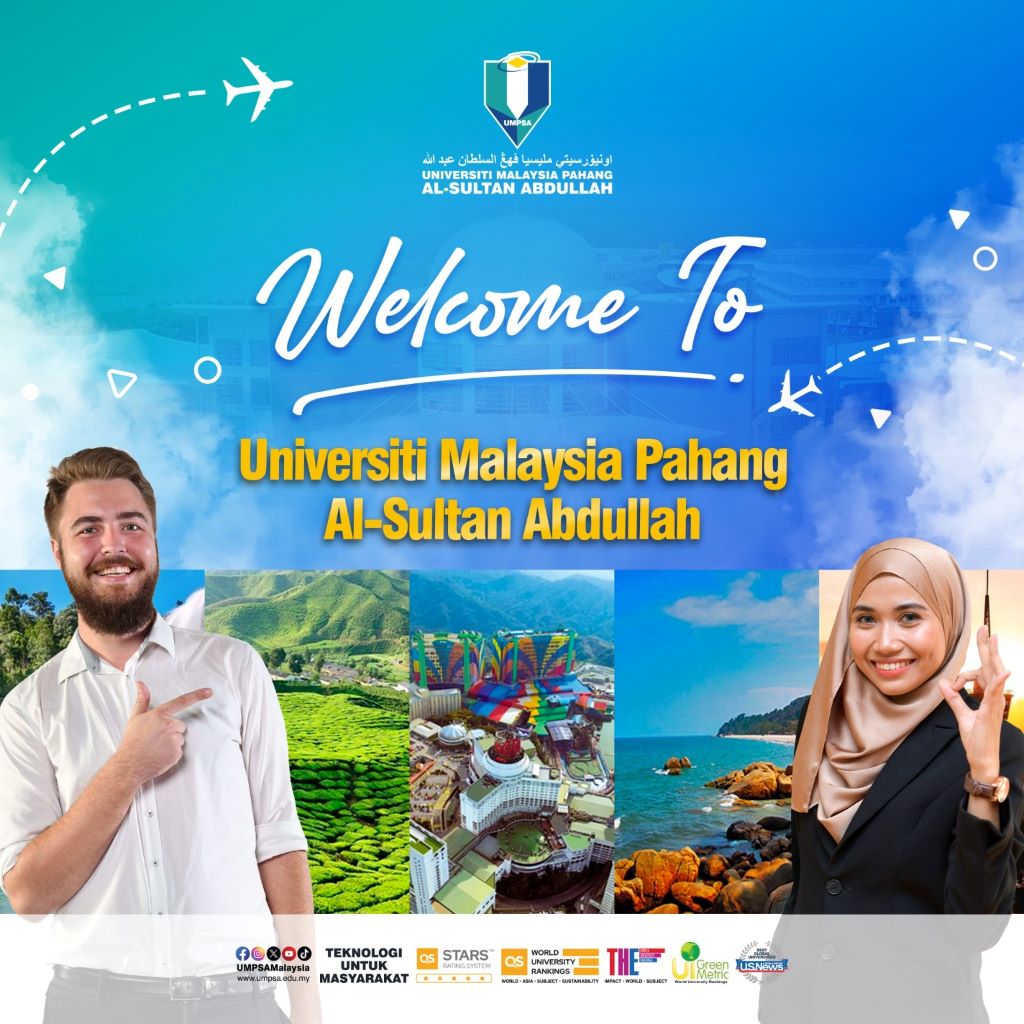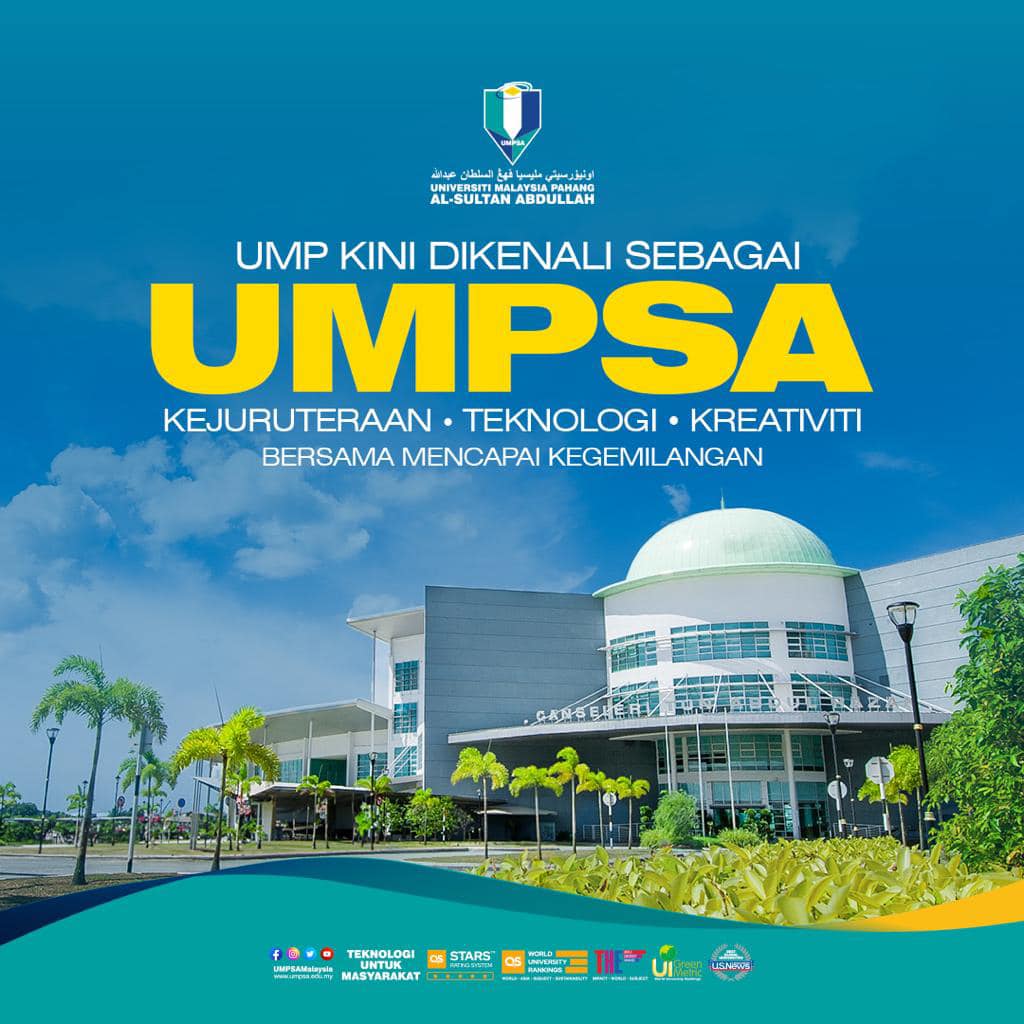Uplifting Communities Through Digital Literacy in the Malaysian Context: The story of UMP STEM LAB
The education transformation generally begins with DIGITISATION in education, involving the way how knowledge is taught and preserved. Today, more than ever, the learning materials are converted into digital formats. The larger the amount of information is available through digital learning using various technical tools, the greater number of data can be displayed, and numerous creative animated learning materials covering theoretical knowledge such as science and engineering concepts are presented more interestingly and interactively.
This change leads to the DIGITALISATION process in our education system, which has impacted the way teaching and learning is conducted. The internet has its influence too, positively, where conventional classroom teaching and learning session has now been shifted to online classes. The implementation of virtual reality and augmented reality in our education system have as well offered unparalleled immersive learning experiences. Recently our Malaysian education system is shifted to online learning, in response towards the recent Covid-19 pandemic. There are, however, obvious challenges, especially in the context of providing the necessary technologies to support this digital transformation in education. Finally, digitalisation in education leads discoveries of new knowledge, invention, and creation. The rise of digital transformation in education across the world means that traditional teaching is evolving, and technologies are taking over classrooms which has a great impact on a student’s learning experience – be it in or out their classroom. The digital revolution in the education sphere means students have access to the best resources at the click of a button in any remote location.
Science, Technology, Engineering and Mathematics (STEM) education is an important topic in our education system today. Knowledge and competencies in STEM enable young millennials a broader option in their future undertakings. For the young millennials to be globally attractive in the challenging evolving world, they have to be digitally literate and acquire the right skill sets which are analytical, adaptable, and agile. With thousands of learning materials that are available at a finger click, the young millennials must acquire the right skill to locate, analyse and synthesise information. Being analytical is crucial, especially in identifying the right knowledge and skills in addressing real-world problems. Young millennials also need an agile mindset, willing to try new things and learn from both success and failure, and be supported to do so. Finally, how well the young millennials adapt with the new constantly changing learning environment would as well impact their future undertaking.
Young millennials are generally tech-savvy. Millennials interact with technology like no other generation before them. However, in today’s rapidly evolving world, where the terms ‘disruptive technology’ and ‘disruptive innovation’, become common in our daily life, being only a technology user is insufficient. Young millennials need to cultivate the innovator’s mindset. Coming to realise the importance of acquiring the innovator’s mindset, UMP lecturers and faculty members, teamed up to set up UMP STEM Lab and started to engage with the community about the importance of STEM education, backed with a strong belief that early exposure would ignite interest among the youngsters to take up STEM in their future and cultivate the innovators’ mindset. Essential skills and knowledge that would equip young millennials include robotics, embedded systems, and coding. These domains have become regular platforms in today’s inventions. UMP STEM Lab modules were carefully crafted to nurture their interest to be innovators.
Throughout UMP STEM Lab outreach program, preschoolers and early primary school children were introduced to the technology in fun and interactive activities. At this stage, the emphasis is more into defining the technology, which answers the WHAT questions. Whereas, via hands-on classes, secondary school children experiment and learn the working mechanism and its operating concepts. Here, the focus is into HOW stuff works.
Throughout the years, UMP STEM Lab has collaborated with various local and international industries and agencies. With strong support from UMP top management, staff, students, the community specifically the schoolteachers, and most young millennials – the school children, UMP had managed to engage with more than 4,000 schoolchildren and teachers in the outreach programmes. Involvement and commitment from each party are essential in assuring the success of this community engagement and outreach programmes.

The writer is the Director of Centre for Industry & Community Network (ICoN), Universiti Malaysia Pahang (UMP).
By: Associate Professor Ir. Dr. Nurul Hazlina Noordin
e-mail: hazlina@ump.edu.my
This article was presented in the UNITED NATIONS EDUCATIONAL, SCIENTIFIC AND CULTURAL ORGANISATION (UNESCO) INFORMATION FOR ALL PROGRAMME (IFAP) 10 August 2020.


